OOOOOOOOOOOOOOOOOOOOOOOOOOOOOOOOOOOOOOOOOOOOOOOOOO
I wish I could answer this - THE GREAT RACE and THOSE MAGNIFICENT MEN IN THEIR FLYING MACHINES both came out in 1965. It would be interesting to know who came up first with the idea of the car and/or the airplane film. Fortunately, aside from some brief cross-referenced scenes, THOSE MAGNIFICENT MEN remained bound to the sky as THE GREAT RACE was bound to the earth.
In 1907 the world's first really great automobile race occurred: the Peking to Paris road race. It was such a success that it was hoped that a similar long race would be tried soon after. The result was the 1908 New York to Paris road race, which is the factual basis of THE GREAT RACE. It was won by a Thomas Flyabout, which had an appearance very much like the car driven by the Great Leslie. The cars in the 1908 race were to drive from New York City to Seattle, Washington, then get shipped by steamer to Vladivostok, and then to transverse the Russian Empire, Europe, and finally reach Paris. So keep in mind, there was no use of icebergs as in the film.
Blake Edwards always has enjoyed playing around in his comedies and musicals with images from the times of the story. For example, in THOROUGHLY MODERN MILLY one of the two male leads wears eyeglasses, and (to see his girlfriend) climbs the side of an office building - in short (as the story takes place in the 1920s) he is imitating Harold Lloyd in SAFETY LAST. He dedicates this film to Laurel and Hardy, although it is set before the 1920s.
In THE GREAT RACE he uses the forgotten 1908 race to build upon many different social events of the day like the suffragette movement that involves Natalie Wood (as the Nellie Bly like reporter Maggie) and her friend Vivian Vance as the wife (and temporary successor) of husband Arthur O'Connor a newspaper editor. There is also the final days of the American frontier, as seen in the sequences involving the town of Borracho and Tony Curtis' confrontation with Larry Storch over Dorothy Provine. There is (finally) the unsettled state of Balkan Europe, wherein the plot of Anthony Hope's THE PRISONER OF ZENDA is lampooned, concluding with a pie fight.
The film marked the reunion of Tony Curtis and Jack Lemmon after their first pairing in SOME LIKE IT HOT, but Lemmon's character there was not as comically sinister as Professor Fate is here. Fate is totally captivated by his own ego. He certainly has engineering ability, but he is incapable of being friendly (when he is about to test out a rocket device early in the film his picture is being taken - some kids are touching the rocket, and he angrily yells at them to go away). He also is stuck with having the faithful but totally inept assistant Max (Peter Falk - who comes close to stealing the film) who constantly is pushing the wrong buttons on Fate's machines, with disastrous effects. And he is constantly trounced by the handsome, accessible, "Frank Merriwell" like "Great Leslie" (Curtis) who is far better organized, and a hell of a deal luckier.
Not that Leslie is without flaws. A man of the Edwardian period, he does not think woman are fully the equal of men. Notice that Leslie's most fair minded complement to Maggie is that her choice of a Stanley Steamer for the race was the wrong car. It is, he says, meant for picnics and Sunday drives. But, he adds, her success in getting it across half of the U.S. before the boiler gave out was quite an accomplishment...and she should be proud. The self-satisfaction is annoying as Maggie shows. I might add that in the period of the film, Stanley Steamers won several races - steam engines can build up tremendous amounts of power but they have to be replenished more frequently than gasoline engines.
Besides the four leads (five if you count the under-used Keenan Wynn) the performances of Storch and Provine were good (Provine being allowed a lively dance hall tune - "He Shouldn'ta, Hadn'ta, Oughtn'ta Swung On Me!", with Storch being unable to get the right amount of room he needs to cut loose on Curtis without falling on his face. Wood (like Provine) was given a nice tune - the charming, "Sweetheart Tree". And in the Balkan section, besides a second role for Lemmon, the conspirators George Macready and Ross Martin make the most of the "Ruritania" story - and demonstrate their own flair comedy (a rarity for Macready).
For Martin it is particularly welcome, as his last appearance under Edwards' direction was as the evil criminal in EXPERIMENT IN TERROR three years earlier. While Baron Von Stuppe (what a name - possibly a cousin to Lily Von Stuppe (Madeleine Kahn) in BLAZING SADDLES) is a villain, he is shown to be confused sometimes - see Wood threaten him with President Theodore Roosevelt's wrath, and start singing the "Star Spangled Banner". Martin doesn't know what to do with this female nut.
In 1907 the world's first really great automobile race occurred: the Peking to Paris road race. It was such a success that it was hoped that a similar long race would be tried soon after. The result was the 1908 New York to Paris road race, which is the factual basis of THE GREAT RACE. It was won by a Thomas Flyabout, which had an appearance very much like the car driven by the Great Leslie. The cars in the 1908 race were to drive from New York City to Seattle, Washington, then get shipped by steamer to Vladivostok, and then to transverse the Russian Empire, Europe, and finally reach Paris. So keep in mind, there was no use of icebergs as in the film.
Blake Edwards always has enjoyed playing around in his comedies and musicals with images from the times of the story. For example, in THOROUGHLY MODERN MILLY one of the two male leads wears eyeglasses, and (to see his girlfriend) climbs the side of an office building - in short (as the story takes place in the 1920s) he is imitating Harold Lloyd in SAFETY LAST. He dedicates this film to Laurel and Hardy, although it is set before the 1920s.
In THE GREAT RACE he uses the forgotten 1908 race to build upon many different social events of the day like the suffragette movement that involves Natalie Wood (as the Nellie Bly like reporter Maggie) and her friend Vivian Vance as the wife (and temporary successor) of husband Arthur O'Connor a newspaper editor. There is also the final days of the American frontier, as seen in the sequences involving the town of Borracho and Tony Curtis' confrontation with Larry Storch over Dorothy Provine. There is (finally) the unsettled state of Balkan Europe, wherein the plot of Anthony Hope's THE PRISONER OF ZENDA is lampooned, concluding with a pie fight.
The film marked the reunion of Tony Curtis and Jack Lemmon after their first pairing in SOME LIKE IT HOT, but Lemmon's character there was not as comically sinister as Professor Fate is here. Fate is totally captivated by his own ego. He certainly has engineering ability, but he is incapable of being friendly (when he is about to test out a rocket device early in the film his picture is being taken - some kids are touching the rocket, and he angrily yells at them to go away). He also is stuck with having the faithful but totally inept assistant Max (Peter Falk - who comes close to stealing the film) who constantly is pushing the wrong buttons on Fate's machines, with disastrous effects. And he is constantly trounced by the handsome, accessible, "Frank Merriwell" like "Great Leslie" (Curtis) who is far better organized, and a hell of a deal luckier.
Not that Leslie is without flaws. A man of the Edwardian period, he does not think woman are fully the equal of men. Notice that Leslie's most fair minded complement to Maggie is that her choice of a Stanley Steamer for the race was the wrong car. It is, he says, meant for picnics and Sunday drives. But, he adds, her success in getting it across half of the U.S. before the boiler gave out was quite an accomplishment...and she should be proud. The self-satisfaction is annoying as Maggie shows. I might add that in the period of the film, Stanley Steamers won several races - steam engines can build up tremendous amounts of power but they have to be replenished more frequently than gasoline engines.
Besides the four leads (five if you count the under-used Keenan Wynn) the performances of Storch and Provine were good (Provine being allowed a lively dance hall tune - "He Shouldn'ta, Hadn'ta, Oughtn'ta Swung On Me!", with Storch being unable to get the right amount of room he needs to cut loose on Curtis without falling on his face. Wood (like Provine) was given a nice tune - the charming, "Sweetheart Tree". And in the Balkan section, besides a second role for Lemmon, the conspirators George Macready and Ross Martin make the most of the "Ruritania" story - and demonstrate their own flair comedy (a rarity for Macready).
For Martin it is particularly welcome, as his last appearance under Edwards' direction was as the evil criminal in EXPERIMENT IN TERROR three years earlier. While Baron Von Stuppe (what a name - possibly a cousin to Lily Von Stuppe (Madeleine Kahn) in BLAZING SADDLES) is a villain, he is shown to be confused sometimes - see Wood threaten him with President Theodore Roosevelt's wrath, and start singing the "Star Spangled Banner". Martin doesn't know what to do with this female nut.
OOOOOOOOOOOOOOOOOOOOOOOOOOOOOOOOOOOOOOOOOOOOOOOOOOOOOOO
CRITICA EN EL PERIODICO "LA VANGUARDIA"
Con la inauguración del espacioso y confortable Waldorf Cinerama, la ciudad cuenta con un nuevo y amplío local para la proyección de esta modalidad cinematográfica, que avanza cada día más a favor de los grandes públicos. La inauguración del antiguo cine Mistral, dañado por las nevadas de hace cuatro años, ha sido tan completa como satisfactoria. El nuevo local es digno, y sumamente acogedor. La apertura al público del Waldorf Cinerama se ha procurado subrayar con un estreno de relieve "La carrera del Siglo" la película elegida está inscrita en las características de gran difusión que persigue el Cinerama. Dos echos fundamentales caracterizan, su tema: lo espectacular y lo cómico. estas condiciones se ajustan a un lenguaje universal en el que las imágenes toman prominencia sobre las palabras y son legibles para públicos de todas las edades. La carcajada no tiene idioma propio, y la admiración por unos exteriores excelentemente captados en tecnicolor, también están en "El mundo esta loco, loco, loco, loco", la cinta ahora estrenada, es una evocación de films y estilos pretéritos. Allí se recordaban "gags", aquí con personajes y citas que ocupan lugar preeminentes en el recuerdo de muchos, casi todos los géneros cinematográficos están presentes en este film, que simboliza, en cierto modo, la historia del cine americano, a través de una carrera de "genonevas" de principio de siglo, a través de tres continentes, dos superhombres de la época, el "Gran Leslie" y el "Profesor Fate" se enfrentan a lo largo de la película. Con un humor extraordinario convertido el primero en la encarnación del "Bien" y el segundo en el del "Mal". Las aventuras se desconectan de la realidad por medio de un desafío que convierte a los tipos en muñecos y devuelve a éstos el enfrentamiento, a través del intencionado y malicioso prisma con que se les hace actuar. La riqueza creadora del humor de Blake Edwards encuentra paradójicamente el freno de su propia fantasía. Son tan diversos, espectaculares y fantásticos sucesos que registra la cámara, que la película no pierde su calidad de unificado con una acción válidamente articulada y un ritmo apropiado. Dos horas y media de los mas disparatados, imaginativos y regocijantes tiene de extraño que se produzcan baches en la calidad, e incluso desinterés. Con unos medios materiales extraordinarios, el realizador ha situado un nivel técnico importante. La ambientación es fastuosa, alegre y simpática. Los diálogos chispeantes y divertídos, y la cámara de una gran calidad, potenciada por su amplitud y por un color excelente. La interpretación, Jack Lemmon es quien corre con el papel más difícil, acidez expresiva y su versatilidad son puestas a duras pruebas y sale airoso de las mismas. Tony Curtis es el bueno por antonomasia, héroe cuya prestancia a sido acentuada con acierto. Natalie Wood es la gentil actriz de todos conocida, aunque algo mecanizada por imposiciones de un personaje gracioso pero escaso en matices. "La carrera del Siglo", es una farsa descunyunturada y repleta, de la que hay que destacar, entre otras muchas escenas; la batalla de tartas, resulta por su tratamiento, una página antológica del cine. MUNTAÑOLA.
OOOOOOOOOOOOOOOOOOOOOOOOOOOOOOOOOOOOOOOOOOOOOOOOOOOOO
One of the most underrated movies of all time.
I cannot believe that "The Great Race" did not make it on AFI's 100 Funniest Movies list (well, actually I CAN believe it, since those lists seem very messed up to me). In fact, it has not gotten nearly as much recognition as it deserves.
It is simply one of the funniest movies I have ever seen! The whole cast shines (especially Lemmon, who should have won an Oscar for Best Scene Stealer). Besides the great slapstick, there are a million subtle details that you don't notice unless you are really paying attention. This is why the movie is still great after several viewings: each time you watch it, you are bound to catch some little joke you didn't see before.
Everything about this movie cracks me up. The contrast in character between Tony Curtis and Jack Lemmon is just great, the chemistry between the different characters is great, the movie parodies are great, the sets are great, the slapstick is great, and the dialogue is great. Even the MUSIC is funny... every time that goofy theme music for Professor Fate starts playing, I start laughing.
If you haven't seen this, I highly suggest you rent it. Yes, it is long, but it is one of the few comedies I have seen that keeps up the laughs consistently... it never sags or has dull moments. It is downright hilarious from start to finish.
And to top it all off, it has some very cool cars.
OOOOOOOOOOOOOOOOOOOOOOOOOOOOOOOOOOOOOOOOOOOOOOOOOOOOO
the best of everything!!!
The best pie fight,bar room brawl,sword fight,comedic love story...wackiest villain...Saddened it's not mentioned as one of the greatest comedies ever or even mentioned as one of Jack Lemons greatest comedic roles.I'm guilty of quoting movie lines when the time is right and often quote from this movie. "Brandy,Brandy...","now you're using sex as a weapon..","RISE AND SHINE?","..now if you were the mens fencing champion...""NOW CAN I GET ME SOME FIGHTN' ROOM!" I can't believe Tony Curtis was a second choice to play "The Great Leslie".His all American do-gooder mentality is nauseatingly funny. Natalie Wood is beautiful and plays the ultimate suffragette. Jack Lemmon and Peter Falk are a fun duo as Leslies villainous rivals and truly set the tempo of the slapstick.Only Blake Edwards could have pulled off such an epic comedy.Who cares if the the drive around the world does'nt make sense.This movie is a true blue farce in every sense,nothing more and nothing less. Perfect casting and screenplay and the writers should be commended.
OOOOOOOOOOOOOOOOOOOOOOOOOOOOOOOOOOOOOOOOOOOOOOOOOOOOOO
The Great Race Is A Great Comedy
This is director Blake Edwards salute to the early days of films. It is quite long, but worth the time to see this masterpiece, and appropriate for all ages. Its basically the good guy vs the bad guy and the heroine theme but the roles are mixed up in a wonderful way to where each main character is both at different times. I love Maggie DuBois(Natalie Wood) the most because she is such a strong intelligent woman, and yet beautiful and sexy. She would do anything to stay in the race, and did. Professor Fate and Max are not Laural and Hardy but evoke their comedy team spirit strongly. They are the ones that make the bumbling mistakes that make them more human than the perfect Leslie(Tony Curtis). The prince is a silly compliment to Professor Fate, both brilliantly played by Jack Lemmon. Also worth seeing is Vivian Vance as the wife of the newspaper owner, and Larry Storch as the gunfighter. I really liked the submarine, rocket sled, pedaled air balloon, and the vintage cars. Visually, this movie is a work of art, and the music is perfect. The score features Henry Mancini's "The Sweetheart Tree." Yes, there's lust, love and romance here too. This is the quintessential epic comedy of the 60's.
OOOOOOOOOOOOOOOOOOOOOOOOOOOOOOOOOOOOOOOOOOOOOOOOOOO
" I won't say a word about our sinking. Until it reaches my lower lip, then I'm mentioning it to somebody! "
This is a movie which when first shown in 1965 drew audience cheers from the very beginning and continues to draw enthusiastic praise when given special showing on college and University campuses. The reason is due perhaps that all the character roles were hand picked and each actor fitted their part like a glove. The story is based on the numerous fads, college stunts and mechanical record challenges of the early 1900s. In this story we have an automobile race which will start in New York and end up in Paris, France. The duel battle is reminiscent of the old vaudeville plays involving a Canadian Mountie and his old Nemesis Snidely Wipelash. Here we have our hero, The "Great" Leslie (Gallent III) played by Tony Curtis challenged by Prof. Fate (Jack Lemmon) to a very long race. As with early films each lead has a sidekick. Peter Falk is Max and Keenan Wynn is Hezekiah. To give it a modern era setting (1900s) Arthur O'Connel plays Henry Goodbody a Newspaper Editor interested in keep tabs on the contestants in their round the word race. Natalie Wood plays suffragette Maggie Dubois who aspires to be the first woman reporter for the Sentinental. The movie contains all the earmarks of a Classic out of the old school of comedy and thus is sympathetically dedicated to the great comedy duo of the early movie era, Laural and Hardy. To further add enjoyment throughout the film there are added Hollywood stars like Larry Storch, Ross Martin, Denver Pyle and Roy Jenson. A great film for any audience in any era. Excellent movie fare and a genuine Classic!. ****
OOOOOOOOOOOOOOOOOOOOOOOOOOOOOOOOOOOOOOOOOOOOOOOOOOOO
My All-Time Favorite Film
Some say this movie is too long. For me, it's not long enough. I wish it crossed the three hour mark just to stick it in the eye of all the movie's detractors about the movie's length.
When they've crossed the finish line in Paris, I feel very happy being through such an enjoyable and hilarious adventure, but at the same time, I also feel sad that it's now over. Clearly the movie left it open-ended for a possible sequel after Professor Fate, feeling he had received a hollow victory, challenges the Great Leslie to another race -- Paris to New York. It's too bad this sequel never materialized.
This movie is without doubt, my all-time favorite movie -- and I like a lot of movies! The reason I say this is my favorite is that it stands up to viewing after viewing after viewing and it has never lost my interest. If anything, it has grown even more to be my favorite since I can recite so many of its wonderful, classic lines before they're said -- sort of like fans do in the cult favorite "The Rocky Horror Picture Show".
The cast was perfect. I cannot imagine ANYONE else in these roles. Just as there is only one actor that IS Superman, Christopher Reeve, and only one actress that IS Wonder Woman, Lynda Carter, so too can no other actors and actresses, other than those cast in "The Great Race", be imagined in these classic roles. Every single actor and actress in the movie delivered his performance spot-on! I enjoyed every minute of the movie.
I think "The Great Race" is a true classic. The sets and locations are wonderful -- a visual feast! From the opening scene with that beautiful red, white and blue hot-air balloon, to the Wild West locations of the American Southwest, to Potzdorf's Prince Hapnik's sumptuous palace and grounds and Baron von Stuppe's menacing castle where he sword-fights Leslie, and finally to the streets of Paris -- all great visuals one will always remember, long after the movie is over.
The costumes too, are a visual feast -- superb and sumptuous! One can really tell that they poured a lot of money into the costumes. It really shows that they definitely got their money's worth as to what ended up on the screen. The costumes of the Potzdorf nobles there at the Royal Ball when they waltz, is simply amazing. The uniforms of Potzdorf's guards too, look great. Let's not forget the great costumes back in Boracho -- from those sexy dancing showgirls in the saloon, singing "It looks to me like a big night tonight, big night tonight. When the old cat's away, all the mice want to play! And it looks like a big night tonight!" to Lilly Olay's sexy, form-fitted, yellow, satin dress as she sings, "He Shouldn't A Hadn't A Oughtn't A Swang on Me" (my favorite song in the movie. Thank you Johnny Mercer for your awesome lyrics in this song!) to all the rest of the town's residents in their authentic-looking and well-tailored Western outfits.
The film clearly had masters in the arts and science of cinematography, production design, costume design, stunts and the great Henry Mancini for the movie's great and unforgettable score. It's a shame that this movie was not recognized at Oscar time, for its great achievements in all these categories.
"The Great Race" is one very under-appreciated movie. It has the BEST pie fight scene in cinematic history; it has the BEST barroom brawl scene in cinematic history; it has one of the BEST sword-fighting scenes in cinematic history, and yet it never gets mentioned or alluded to in today's pop culture or even to be hailed by film critics as one of the greatest film comedies of all time. I am very disappointed by this. It is truly an overlooked masterpiece and perhaps someday, it may get the true recognition and respect it deserves.
OOOOOOOOOOOOOOOOOOOOOOOOOOOOOOOOOOOOOOOOOOOOOOOOOOOO
Classic Comedy
I remember seeing this movie as a kid. I remember laughing until my sides hurt, and I thought this had to be one of the greatest comedies ever made.
The movie starts with the Great Leslie, a dashing, young daredevil at the turn of the century. Leslie wants to sponsor an car company by holding a race from New York to Paris. However, his rival, Professor Fate, has been waiting to show up Leslie for a long time. When he hears about the race he enters with a car of his own twisted design. In addition, a strong-willed suffragette named Maggie DuBois enters the race to prove she can be a good reporter.
From the minute the starting pistol fires, hilarity ensues...
There are so many great things about this movie. For starters, the movie features an all-star cast. Tony Curtis plays the Great Leslie. Comedic legend Jack Lemmon plays the hilarious Professor Fate. I love his "villain" look in the movie. It makes him look even funnier than he already is. Hollywood sweetheart Natalie Wood plays Maggie. Wood's performance gave Maggie an attitude that made things interesting for her costars. Future-Colombo star, Peter Falk, starred as Fate's bubbling sidekick. But for me, the best thing about the movie was the humor. Not only does this movie boast hilarious antics from all of its stars, and the largest and funniest pie fight and bar fight ever filmed, it also produced some of the funniest lines I've ever heard in any movie, including one that my family quotes all the time:
"Push the button, Max."
This movie is one of my favorite comedies of all time. I would recommend this movie for movie lovers of all ages.
So, who wins? You'll just have to see it to find out.
OOOOOOOOOOOOOOOOOOOOOOOOOOOOOOOOOOOOOOOOOOOOOOOOOO
In Retrospect-Still Glad I Risked a Court Martial to See It
"The Great Race," a delightful parody of silent film, is still one of my favorite epic comedies. The adventures of Tony Curtis, Jack Lemmon, Natalie Wood and Peter Falk as they compete in the early twentieth century to win a New York to Paris auto race always make me laugh. And has any other film even approached the firing in rapid salvoes of 2,357 pies in the biggest food fight in cinematic history? I don't think so.
"The Great Race" came out just as I entered the Army in 1965. I wanted to see the movie but Uncle Sam had more urgent need for my time, quite a bit of it. May 1966: as a young second lieutenant I was shipped to Fort Lewis, Washington to await my first air trip across the Pacific. Flights, all charter (the famous Northwest Orient "Red Tails"), left frequently but irregularly each day and orders were clear and specific: do not venture from the small area to which you were bivouacked. Wait for your name to be announced. Missing a flight would be a court martial offense.
Someone had the post newspaper and I saw that "The Great Race" was playing but inquiry disclosed the nearest theater was two miles away on the sprawling Army base. I decided to walk there. My companions were aghast - they couldn't believe I'd risk a court martial to see a movie. No one would go with me.
I remember the afternoon well. It was sunny and warm, nice weather for an often cloudy and drizzle-soaked region. The price of admission was twenty-five cents, popcorn and a soda another two bits. I enjoyed every minute of the movie and walked back to my area with a big smile on my face. Five minutes after getting there my name was called on the P.A. system and within a half-hour I was on a bus to nearby McCord AFB for a long flight. A close call!
I showed the film to my teenage kid tonight and told him how I first managed to see it. He thinks I was nuts as they did some of the guys who were on the same flight.
A long film, the pace keeps up nicely and it's easy to surrender to the non-stop zaniness. Jack Lemmon is at his comedic best as "Professor Fate," a man who would never easily do something right if he could stoop to evil machinations. Natalie Wood is charming and Tony Curtis's deadpan delivery evokes memories of the days of the silents. Peter Falk - pre-Columbo - is an effective foil to Lemmon.
One of my all-time favorite movie songs is "The Sweetheart Tree" by Henry Mancini. I hadn't heard in years before tonight and it brought back a flood of memories. It's a lovely song.
If you've never seen "The Great Race," do so. It's now available in an excellent DVD transfer.
"The Great Race" came out just as I entered the Army in 1965. I wanted to see the movie but Uncle Sam had more urgent need for my time, quite a bit of it. May 1966: as a young second lieutenant I was shipped to Fort Lewis, Washington to await my first air trip across the Pacific. Flights, all charter (the famous Northwest Orient "Red Tails"), left frequently but irregularly each day and orders were clear and specific: do not venture from the small area to which you were bivouacked. Wait for your name to be announced. Missing a flight would be a court martial offense.
Someone had the post newspaper and I saw that "The Great Race" was playing but inquiry disclosed the nearest theater was two miles away on the sprawling Army base. I decided to walk there. My companions were aghast - they couldn't believe I'd risk a court martial to see a movie. No one would go with me.
I remember the afternoon well. It was sunny and warm, nice weather for an often cloudy and drizzle-soaked region. The price of admission was twenty-five cents, popcorn and a soda another two bits. I enjoyed every minute of the movie and walked back to my area with a big smile on my face. Five minutes after getting there my name was called on the P.A. system and within a half-hour I was on a bus to nearby McCord AFB for a long flight. A close call!
I showed the film to my teenage kid tonight and told him how I first managed to see it. He thinks I was nuts as they did some of the guys who were on the same flight.
A long film, the pace keeps up nicely and it's easy to surrender to the non-stop zaniness. Jack Lemmon is at his comedic best as "Professor Fate," a man who would never easily do something right if he could stoop to evil machinations. Natalie Wood is charming and Tony Curtis's deadpan delivery evokes memories of the days of the silents. Peter Falk - pre-Columbo - is an effective foil to Lemmon.
One of my all-time favorite movie songs is "The Sweetheart Tree" by Henry Mancini. I hadn't heard in years before tonight and it brought back a flood of memories. It's a lovely song.
If you've never seen "The Great Race," do so. It's now available in an excellent DVD transfer.
OOOOOOOOOOOOOOOOOOOOOOOOOOOOOOOOOOOOOOOOOOOOOOOOO
Push the "Play" Button, Max!
This movie is quite simply a side-splitter. If you can watch this movie without laughing, then you need to have your head examined. That or you might be going deaf and blind. From the suffragette who handcuffs herself to the door of the men's room to the royal food fight that breaks out after the coronation, there's just nothing this movie won't do to make you chuckle.
It's all good clean fun- well, except for the pie filling that drenches Natalie Wood, who is in her underwear but not exactly alluring covered in whipped cream and mashed cake. Tony Curtis is great as the hero dressed all in white who manages to remain immaculate in the midst of the craziest situations. Jack Lemmon is hysterical in all of his parts, especially when he comes face to face with himself. I think I like him best as the too-maniacal-to-be-believed Prof. Fate, with his crazy and disastrous schemes, reminiscent of Wile E. Coyote. His sidekick, Max, chips in some of the funniest lines of the film, while always being a patient helper in the Professor's villanous plans, through thick and thin.
So, as Dr. Fate says, "Push the Button, Max!" Specifically, the Play button, and WATCH THIS MOVIE!!
OOOOOOOOOOOOOOOOOOOOOOOOOOOOOOOOOOOOOOOOOOOOOOOOOOOO
OTRAS PÁGINAS EN ESPAÑOL
OOOOOOOOOOOOOOOOOOOOOOOOOOOOOOOO
MY WEB PAGE TO NATALIE WOOD MOVIES

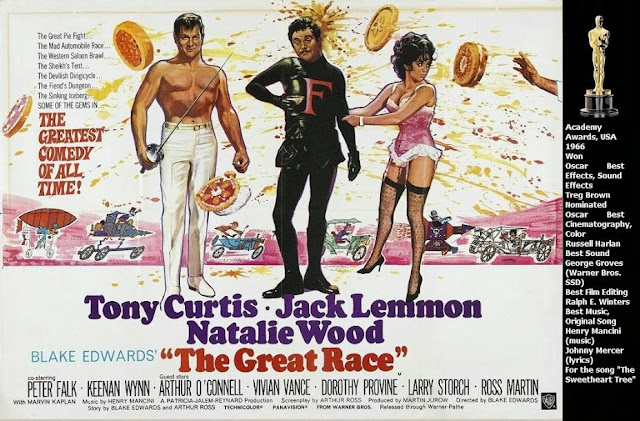








.png)

.jpg)















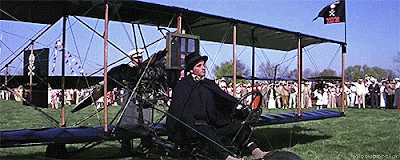



































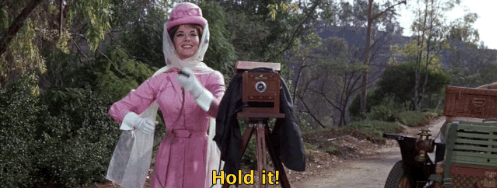
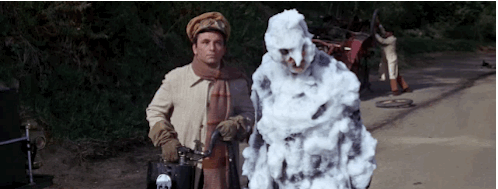
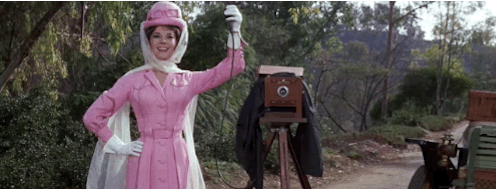
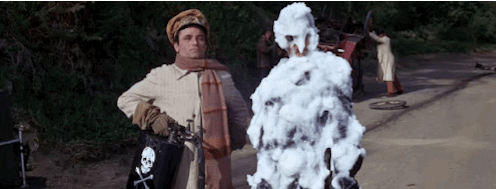















.gif)





















.webp)

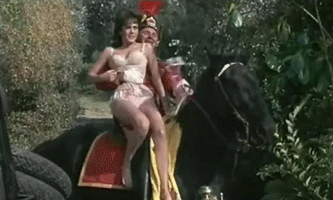

















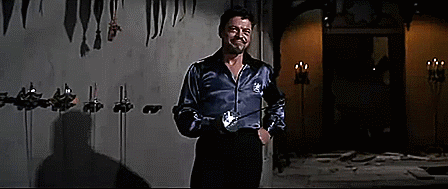




















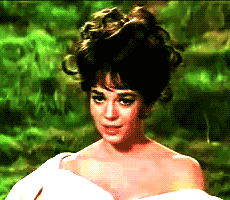











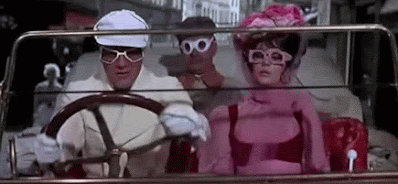







































.jpg)







.jpg)





.png)




.jpg)






.jpg)













.jpg)


.jpg)










.jpg)



.jpg)

.gif)

.jpg)



.jpg)

















.jpg)
.jpg)

.jpg)
.jpeg)
Thanks for your comment, Paco Granados
ReplyDelete